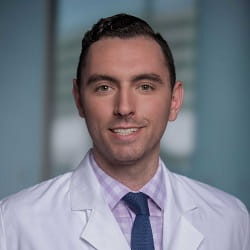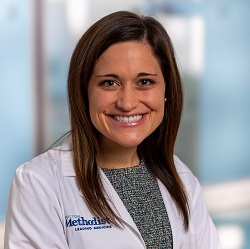PGY2 Solid Organ Transplant Pharmacy Residency

Purpose of the Residency Program:
PGY2 residency programs build upon Doctor of Pharmacy (PharmD) education and PGY1 pharmacy residency training to develop pharmacist practitioners with knowledge, skills, and abilities as defined in the educational competency areas, goals, and objectives for advanced practice areas. Residents who successfully complete PGY2 residency programs are prepared for advanced patient care or other specialized positions, and board certification in the advanced practice area, if available.
Mission Statement:
The pharmacist completing this PGY2 SOT pharmacy residency program will be qualified to independently manage the pharmaceutical care of solid organ transplant patients. The pharmacist will work as part of the transplant multi-disciplinary team, consisting of physicians, nurse practitioners, nurse coordinators, social workers, and case managers, to provide optimal pharmaceutical care in this patient population. Additionally, the pharmacist will be capable to disseminate knowledge through teaching and educating patients, students, and other healthcare providers. The pharmacist will be able to conduct self-assessment and commit to continuous self-learning. Upon completion of this residency program, the pharmacist will be competitive for a role as a transplant clinical pharmacist.
PGY2 residency programs build upon Doctor of Pharmacy (PharmD) education and PGY1 pharmacy residency training to develop pharmacist practitioners with knowledge, skills, and abilities as defined in the educational competency areas, goals, and objectives for advanced practice areas. Residents who successfully complete PGY2 residency programs are prepared for advanced patient care or other specialized positions, and board certification in the advanced practice area, if available.
The pharmacist completing this PGY2 SOT pharmacy residency program will be qualified to independently manage the pharmaceutical care of solid organ transplant patients. The pharmacist will work as part of the transplant multi-disciplinary team, consisting of physicians, nurse practitioners, nurse coordinators, social workers, and case managers, to provide optimal pharmaceutical care in this patient population. Additionally, the pharmacist will be capable to disseminate knowledge through teaching and educating patients, students, and other healthcare providers. The pharmacist will be able to conduct self-assessment and commit to continuous self-learning. Upon completion of this residency program, the pharmacist will be competitive for a role as a transplant clinical pharmacist.
Residency Program Director

Alex W. Rogers, PharmD, BCPS, BCTXP
Clinical Specialist, Solid Organ Transplant
Office: 346.238.0383
Email: arogers@houstonmethodist.org
Clinical Specialist, Solid Organ Transplant
Office: 346.238.0383
Email: arogers@houstonmethodist.org
Residency Program Coordinator

Alyssa Chaplain, PharmD, BCTXP
Clinical Specialist, Solid Organ Transplant
Office: 346.238.4506
Email: alchaplain@houstonmethodist.org
Clinical Specialist, Solid Organ Transplant
Office: 346.238.4506
Email: alchaplain@houstonmethodist.org
